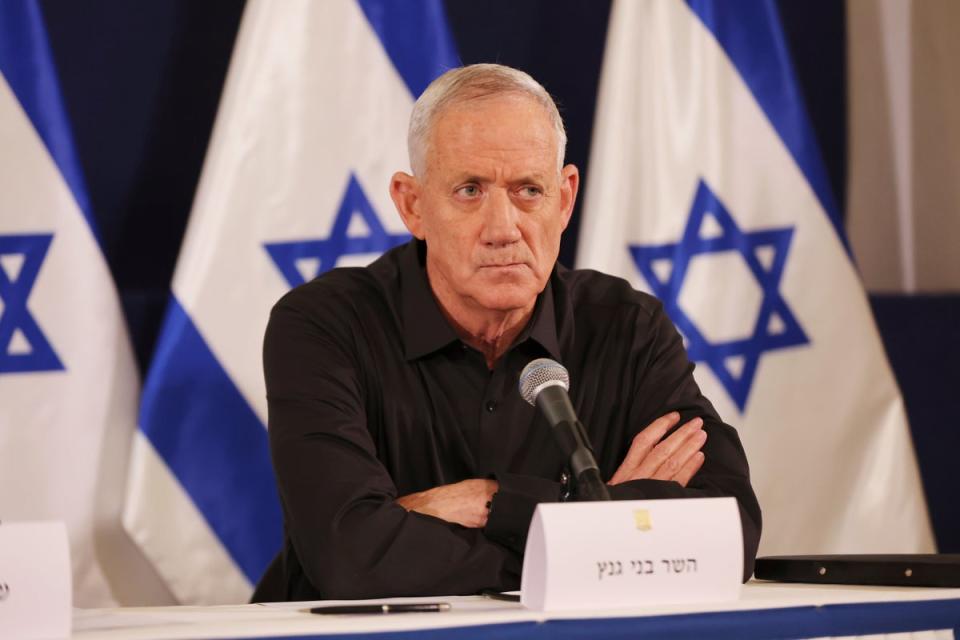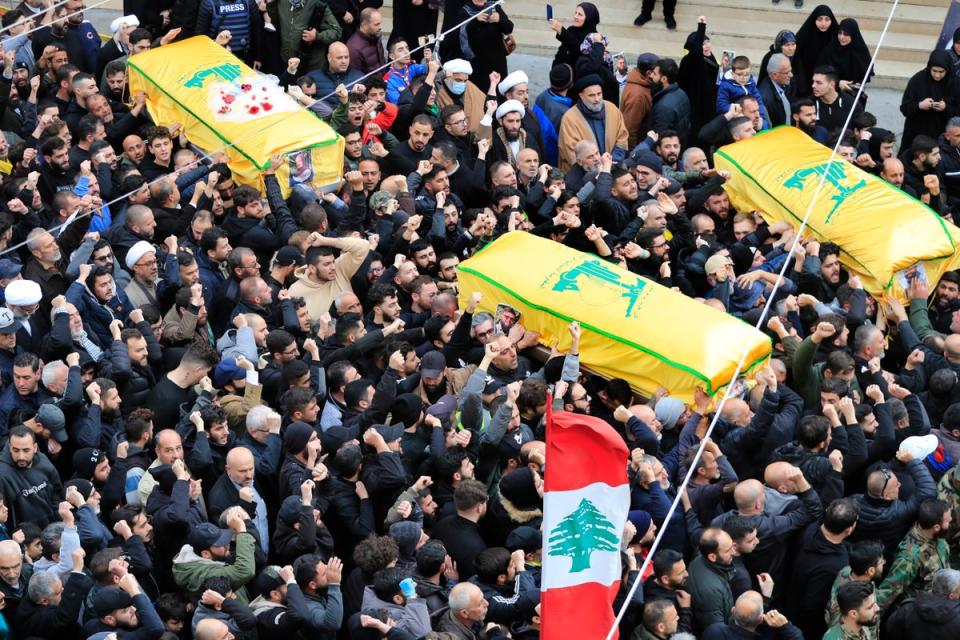Israel warns of second war with Lebanon after heaviest day of cross-border strikes

Israel has warned it will ramp up military action against Iranian-backed forces in southern Lebanon as fears grow that the war in Gaza could escalate to a regional conflict.
The Hezbollah militia has been firing into northern Israel daily since 7 October, when its allied Hamas fighters stormed into southern Israel, killing 1,140 people and taking 240 hostages.
There has been an uptick in cross-border exchanges this week as Hezbollah fired anti-tank rockets, artillery and weaponised drones at Israeli positions. Israel responded immediately by sending up warplanes and firing air-to-surface missiles at Hezbollah positions.
On Wednesday, Hezbollah launched its highest number of cross-border attacks since the day following Hamas’ attack in October.
Israeli minister Benny Gantz, one of only three members of the country’s war cabinet, has since threatened the militant group, saying that the Israeli military will soon be forced to take a more aggressive retaliatory approach to these attacks.

“The situation on Israel’s northern border demands change,” the minister told a press conference.
“The stopwatch for a diplomatic solution is running out; if the world and the Lebanese government don’t act in order to prevent the firing on Israel’s northern residents and to distance Hezbollah from the border, the Israel Defence Forces will do it," he said.
Major General Ori Gordin, Israel’s head of the northern command, said his forces had been put into a “high state of readiness” in light of the recent attacks. Tens of thousands of Israeli soldiers are believed to be stationed near the border with Lebanon.
“Today, we approved plans for a variety of contingencies, and we need to be prepared to strike if required,” he added.
During a visit to northern forces on Wednesday, Israel’s foreign minister Eli Cohen said Hezbollah’s leader, Hassan Nasrallah, should understand that he is next in line to be targeted. Israeli officials have previously said killing Yahya Sinwar, the leader of Hamas in the Gaza Strip, is their top priority.
Four Israeli civilians and eight soldiers have been killed in the latest round of clashes. Nearly 80,000 people have also been evacuated from the north of Israel, according to the Israeli military.
State media in Lebanon reported on Wednesday that a Hezbollah fighter and two of his relatives had been killed in an Israeli airstrike.
It has been alleged that two of the three killed were Australian citizens who had travelled to Lebanon recently from Sydney.

The acting Australian foreign minister, Mark Dreyfus, said he was investigating Israeli claims that one of them was a member of Hezbollah.
Hezbollah was designated as a terrorist organisation by the UK government in March 2019.
The UK government website listing all organisations they have proscribed as terrorists, which includes Hamas, claims Hezbollah is “committed to armed resistance to the state of Israel and aims to seize all Palestinian territories and Jerusalem from Israel”.
Funded by Iran, a regional power and anti-western force vehemently opposed to the state of Israel, Hezbollah is one of the most heavily armed, non-state military forces in the world.
Israel and the southern Lebanese group engaged in a full-blown war in 2006 when the militia carried out deadly cross-border attacks. Israeli forces subsequently invaded southern Lebanon.

